Mi camino decolonizante: Una experiencia sobre la pertenencia y el devenir
Resumen
El hecho de que Barahona reaccionara rechazando y resistiendo la identificación como Latina, la llevó a buscar un entendimiento de sus creencias coloniales profundamente enraizadas. Es así como la exploración de su indigenidad negada puede ser rastreada a momentos clave que han iluminado su camino decolonizante: sus aspiraciones de transformarse en profesora de inglés y de viajar al extranjero para ver el mundo con sus propios ojos y de transformarse en una formadora de docentes para crear un sistema educativo mejor. Como profesora de idioma, ella se transformó en mediadora cultural, una que busca encontrarse en una posición entre el “hogar” y la nación. Finalmente, Barahona nos otorga su opinión sobre existir “entre medio”, lo que sugiere una conexión fuerte al concepto de identidad trasnacional, es decir, adoptar algunas prácticas culturales de la nación huésped mientras conserva su identidad nacional chilena.
Palabras clave
Texto completo:
PDFReferencias
ALCOFF, L. (2006). Visible identities: Race, gender, and the self. Oxford: Oxford University Press.
ARASHIRO, Z. y BARAHONA, M. (Eds.) (2015) Women in academia crossing North South borders: gender, race and displacement. London: Lexington Books.
AUERBACH, E. (1995). “The politics of the ESL classroom: Issues of power in pedagogical choices.”. En J. Tollefson, Power and inequality in language education (págs. 9 - 33). Cambridge: Cambridge University Press.
BAETEN, M., & SIMONS, M. (2014). “Student teachers’ team teaching: Models, effect, and conditions for implementation.” . Obtenido de Teaching and teacher education : doi: http:// dx.doi.org/10.1016/j.tate.2014.03010
BARAHONA, M. (2010). “Enseñando español.”. Recuperado el 30 de 10 de 2010, de Una chilena en Australia: https://malbabarahona.wordpress.com/2010/enseñandoespañol/. Wordpress
BARAHONA, M. (26 de 9 de 2011). “To be or not be a researcher.”. Recuperado el 2012, de My research journey: http://eflteachereducation.wordpress.com/to-be-or-not-be-aresearcher/,Wordpress, 2012 COLLIN, P. (2014). “Digitally enhanced?: Mediated migration and “fourth wave” Chileans in Australia.”. Journal of intercultural studies 35(5), 532 - 48.
CORSON, D. (2001). Language diversity and education . New Jersey : L. Erlbaum Associates, Mahwah.
EICK, C., & VALLI, L. (2010). “Teachers as cultural mediators: a comparisson of the accountability era to the assimilation era.” Critical inquiry. En Language studies 7(1) (págs. 54 - 77).
GEE, J. P. (1996). Social lingüistics and literacies: ideology in discourses. 2nd ed. London: Taylor & Francis.
GLAS, K. (2013). Teaching English in Chile: a study of teacher perceptions of their professional identity, motivation and pertinent learning contents. Frankfurt am Main: Peter Lang.
GROSFOGUEL, R. (2011). “decolonizing post-colonial studies and paradigms of political economy: transmodernity, decolonial thinking, and global coloniality.”. Obtenido de TRANSMODERNITY: Journal of peripheral cultural production of the Luso-Hispanic world 1(1): http://escholarship.org/uc/item/21k6t3fq
HALL, J. (2002). Teaching and researching: language and culture. Harlow: Longman. HOLLAND, D., LANCHICOTTE, W. J., SKINNER, D., & CAINE, C. (1998). Identity and agency in cultural worlds . Harvard University Press.
KAMHI-STEIN, L. (2009). “Teacher preparation and nonnative English speakers educators2. En A. Burns, & J. C. Richards, The Cambridge guide to second language teacher education (págs. 91 - 101). New York: Cambridge University Press.
KUMARAVADIVELU, B. (2001). “Towards a postmethod pedagogy.” . En TESOL Quarterly 35(4) (págs. 537 - 59).
LARRAÍN, J. (2001). Identidad chilena. Santiago: LOM Ediciones.
LARRAÍN, J. (2005). América Latina moderna? Globalización e identidad. Santiago : LOM Ediciones.
Latinobarómetro. (2011). Informe Latinobarómetro. Santiago de Chile: Corporación Latinobarómetro.
LEE, S., & ROTH, W.-M. (2003). “Becoming and belonging: learning qualitative research through legitimate periphereal participation”. Forum qualitative Sozialforschung/ forum: qualitative social research 4(2): Art. 35.
MIGNOLO, W. (2005). The idea of Latin America. Oxford: Blackwell Publishing. MIRZOEFF, N. (1999). An introduction to visual culture. London: Routledge.
MOHANTY, C. (2003). Feminism without borders. Durham: Duke University Press. MONTECINO, S. (2003). Revisitando Chile: identidades, mitos e historias, Cuadernos Bicentenario. Santiago: Presidencia de la República.
NORTON, B. (2005). “Towards a model of critical language teacher education”. En Language issues 17(1) (págs. 12-17).
PENNYCOOK, A. (1995). The cultural politics of English as an international language. London: Longman.
PHILLIPSON, R. (1992). Linguistic Imperialism. Oxford: Oxford University Press.
PRIETO LARRAÍN, M. C. (2011). “Branding the Chilean nation: socio-cultural change, national identity and international image”. PhD dissertation, Leiden University.
REYES CRUZ, M. (2012). “Ni con dios ni con el diablo: tales of survival, resistance, and rebellion from a reluctant academic”. En Decolonization: indigeneity, education and society 1(1) (págs. 141 - 57).
ROTH, W.M., TOBIN, K., ELMESKY, R., CARAMBO, C., MCKNIGHT, Y.M., & BEERS, J. (2004). “Re/making identities in the praxis of urban schooling: a cultural historical perspective.” Obtenido de Mind, culture and activity 11(1): 48 - 69: .doi: 10.1207/s15327884mcal 101_4
SKUTNABB-KANGAS, T. (2000). Linguistic genocide in education - or worldwide diversity and human rights? . London: Lawrence Erlbaum Associates.
TRAIN, R. (2007). “Real Spanish: historical perspectives on the ideological construction of a (foreign) language”. Obtenido de Critical inquiry in language studies 4 (2-3): 207 – 235: .doi: 10.1080/15427580701389672
WALDMAN MITNICK, G. (2004). “Chile: indígenas y mestizos negados.” . En Política y cultura (págs. 97 - 110).

Este obra está bajo una licencia de Creative Commons Reconocimiento-NoComercial-CompartirIgual 4.0 Internacional.
 |
ISSN 1853-1318 (impresa) - ISSN 1853-1326 (en línea)
|
| Indizada en: | |
 | CCPP Catálogo Colectivo de Publicaciones Periódicas http://ccpp.caicyt.gov.ar/cgi-bin/koha/opac-detail.pl?biblionumber=149451 |
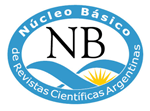 | Núcleo Básico de Revistas Científicas Argentinas, Caicyt http://www.caicyt-conicet.gov.ar/sitio/revista-de-educacion/ |
 | Google académico (en proceso de actualización) |
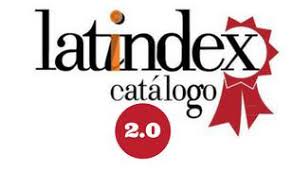 | Latindex https://www.latindex.org/latindex/ficha/14316 |
 | Redib http://redib.org/Record/oai_revista1003-revista-de-educaci%C3%B3n |
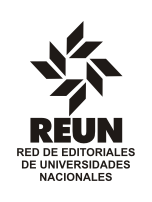 | REUN https://www.reun.com.ar/ |
 | DOAJ Link/ |
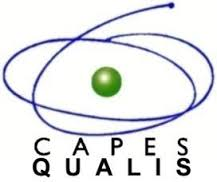 | Capes Qualis Link/ |
 | Journals for Free Link/ |
 | Latinoamericana (Asociación de Revistas Académicas de Humanidades y Ciencias Sociales) Link/ |
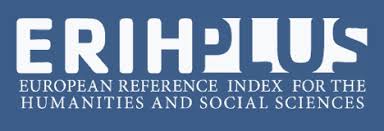 | ERIH PLUS (European Reference Index for the Humanities and Social Sciences) Link/ |
 | ROAD (Directory of Open Acces Scholarly Resources) Link/ |
 | Directory of Research Journals Indexing (DRJI) Link/ |
 | LatinRev Link/ |
| Esta revista utiliza el Identificador Persistente | |
.png) |

